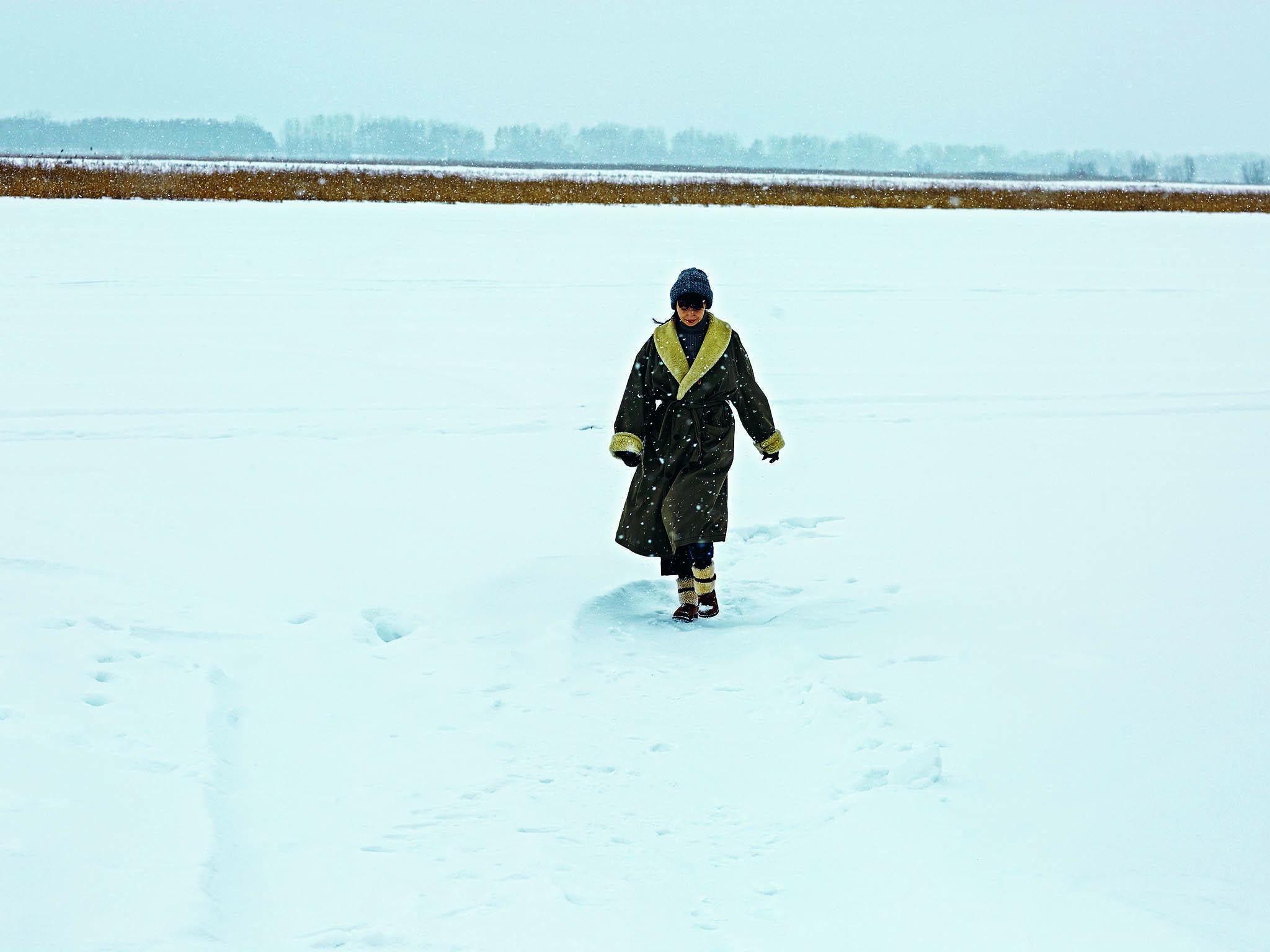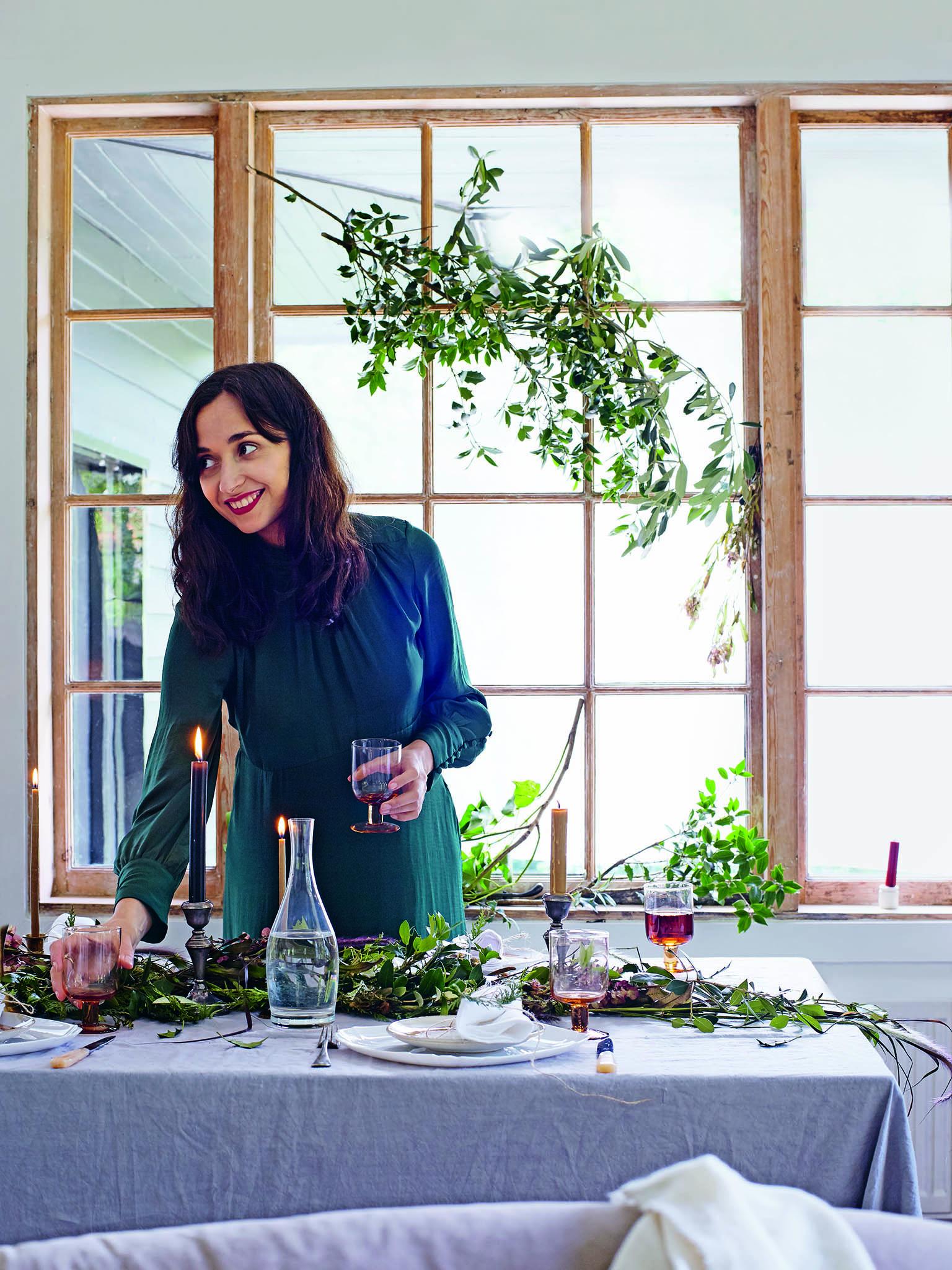How chef Alissa Timoshkina is debunking stereotypes of Russian food
Alissa Timoshkina's book on Siberia is more than just filled with recipes, it's an exploration of a place and its people told through food, says Julia Platt Leonard


Your support helps us to tell the story
From reproductive rights to climate change to Big Tech, The Independent is on the ground when the story is developing. Whether it's investigating the financials of Elon Musk's pro-Trump PAC or producing our latest documentary, 'The A Word', which shines a light on the American women fighting for reproductive rights, we know how important it is to parse out the facts from the messaging.
At such a critical moment in US history, we need reporters on the ground. Your donation allows us to keep sending journalists to speak to both sides of the story.
The Independent is trusted by Americans across the entire political spectrum. And unlike many other quality news outlets, we choose not to lock Americans out of our reporting and analysis with paywalls. We believe quality journalism should be available to everyone, paid for by those who can afford it.
Your support makes all the difference.Siberia encompasses a vast chunk of Russia, stretching from the Ural Mountains to the far east and south from the Arctic ocean to the borders of Kazakhstan, Mongolia and China.
Mention it, and you might think of bitter cold, forced labour camps and exile – a place to be avoided, and certainly not somewhere to go for a good meal.
But a new cookbook by Alissa Timoshkina, Salt & Time, is set to change that. Like the very best in contemporary food writing, Salt & Time is more than recipes; it is an exploration of a place and its people told through food. Born in Siberia, Alissa paints a picture of a land and food that is much more subtle, nuanced and delicious than you might have imagined.
Alissa acknowledges the challenge she’s set herself, saying in the book, “For many, Russian food remains a mystery. It’s one coloured by the Cold War and tempestuous modern day politics as well as an imagined monotonous diet of stodgy potatoes, overcooked cabbage and ubiquitous beetroot.
"But Siberia", Alissa says, "draws on the food and culinary traditions from the Ukraine, Central Asia, Mongolia and even Korea".
This diversity is reflected in her own background. She was born to a mother of Jewish Ukrainian heritage and a father whose family hailed from Russia’s far east, and came to England at 15 to attend boarding school, a “Jane Eyre experience,” she says.
She went on to University in the UK, studying film, received her masters and a PhD. Encouraged to become a teacher she realised, “The outcome of the degree was not what I wanted to do.”
But with her first proper flat, she was able to, “cook the way I wanted to,” she says. It allowed her to explore the food of her home in all of its complexities.

Arguably the strongest influence on her cooking was her great-grandmother Rosalia who was born in 1912 and died in the early 2000s, surviving not only the Russian Revolution but also the Soviet era and the Jewish Holocaust. “Nourishment and hunger are both connected to her,” she says. “On a subconscious level, I was heavily influenced by her and always looked for a way to express that.”
Eager to combine her love of food and film, Alissa started a supper club called KinoVino (kino, meaning film and vino, for wine). The concept was simple: guests would watch a movie together then share a meal with food either taken from or inspired by the movie.
“I didn’t see it as a career, but as a fun project on the side,” she says. With the first event a success, she hosted her second with chef and food writer Olia Hercules, with whom she’d become friends with at University.
When she was asked by chef and food writer Romy Gill to take part in a charity event called Severn Sisters in 2017, she accepted, assuming she’d be behind the scenes.
But Gill wanted her to play a much more prominent role. “She was going to come and help us. And I said, ‘No, you’re going to show where you’re from and what you eat. You need to be part of it,’” Gill says. “It was such an honour but also scary,” Alissa says. “She just needed that little nudge,” says Gill.
When Alissa decided to write a cookbook, she assumed she’d write about KinoVino but the more she thought about it the more she found herself remembering the food of Siberia – her great-grandmother’s profiteroles or the vegetable patties she and her mum would buy after school on the way home in the winter when it was -20 degrees Celsius. “It felt so natural and there was so much I wanted to tell,” she says.
When she told people that she was writing a book on Russian food, some asked, 'Is it just cabbage?'
She did the draft book proposal in a weekend realising that, “If someone did this before me, I’d never forgive myself.” In writing Salt & Time, she poured over pre-revolutionary cookbooks as well as Soviet-era books and gave herself “creative license” to put her own stamp on recipes.
So a Russian salad is lighter, with the traditional mayonnaise-heavy dressing swapped for a mixture of crème fraiche, Greek yoghurt, dill and lemon. Dukkah – the Middle Eastern spice and nut mixture – is reimagined or "russified" by Alissa with fennel, coriander, caraway seeds and black pepper.
Pickles and ferments receive their own chapter, a nod to their importance in Siberian cooking where what’s grown in summer must be stored for winter. She says that fermented and "gut friendly" foods may be enjoying a rise in popularity in the UK but in Russia they’ve been a dietary mainstay since the Middle Ages.
“I’ve been drinking kombucha since I was a little girl,” she laughs. These foods are so important, that they inspired the title. “The mystery of cooking with nothing but salt and time, for me, lies at the very heart of Russian cooking,” she says in the introduction.
When she told people that she was writing a book on Russian food, some asked, “Is it just cabbage?” But flick through the recipes – steak with black radish remoulade or a sorrel and cucumber soup and you can see that it’s much more. Even cabbage gets a makeover in dishes like her layered cabbage pie, with hints of smoked paprika, nutmeg, chilli and herbs. “If you look at the map, it’s such a massive space. And all the countries that border it have a cookbook, so Siberia was this culinary gap,” Alissa says. With Salt & Time, that gap has been filled.
'Salt & Time: Recipes from a Russian Kitchen' by Alissa Timoshkina is out 7 March (Mitchell Beazley, £25)
Join our commenting forum
Join thought-provoking conversations, follow other Independent readers and see their replies
Comments